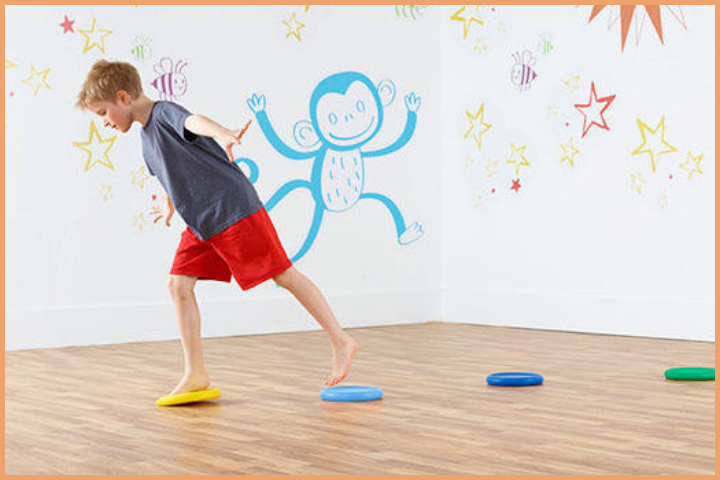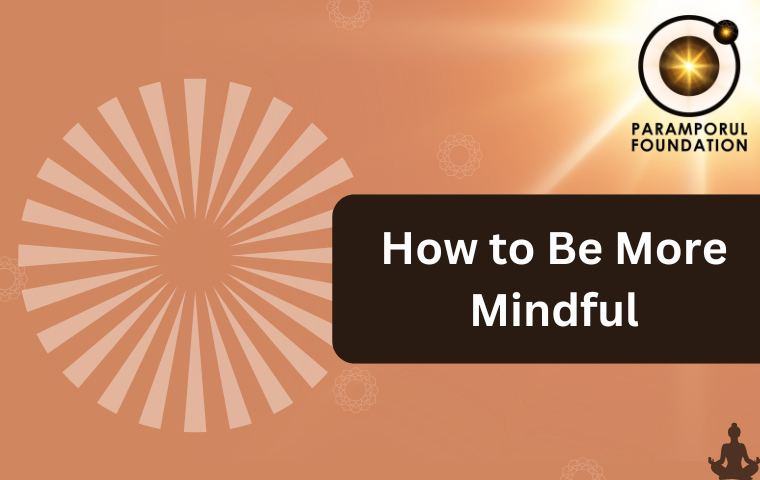Mindfulness means being fully present in each moment, paying attention to what’s happening without judgment. This practice can bring more peace, focus, and joy into your life. For many of us, busy days and endless tasks leave us feeling overwhelmed and disconnected. But with a few mindful habits, you can ground yourself, feel more in control, and experience life more deeply. Here’s how to be more mindful in ways that anyone can adopt.
1. Start with Small Moments of Mindfulness

Practicing mindfulness doesn’t require a big change; start by choosing moments in your day to be fully present. Whether it’s brushing your teeth, drinking coffee, or walking to work, focus on the details of each experience. Notice the sensations, sounds, and thoughts without letting your mind wander. This habit will help you train your brain to be more present in everything you do.
2. Breathe with Intention

Breathing mindfully is one of the easiest ways to connect to the present. Take a few moments each day to focus on your breathing. Breathe in slowly through your nose, hold for a second, and exhale through your mouth. Pay attention to each breath. This practice calms the mind, lowers stress, and reminds you to come back to the present whenever you feel distracted or anxious.
3. Focus on One Task at a Time

Multitasking can make us feel productive, but it often leads to more stress and less accuracy. To be more mindful, try focusing on one task at a time. Whether it’s working on a project or talking with a friend, give it your full attention. This practice helps you work more efficiently, stay engaged, and enjoy what you’re doing.
4. Practice Mindful Eating

Eating mindfully means savoring each bite without distractions like the TV or phone. Look at your food, notice its smell, and enjoy the flavors. Slow down and chew carefully. This practice improves digestion, helps you feel satisfied with your meal, and prevents overeating.
5. Set Boundaries with Technology

Constant notifications can scatter our focus and prevent us from being present. Set boundaries around screen time and take breaks from your devices. Create a habit of putting your phone aside when spending time with family, during meals, and before bed. This helps relieve stress and lets you connect more deeply with those around you.
6. Move Mindfully

Being mindful isn’t just about sitting still; it’s also about moving with awareness. When you exercise, walk, or even stretch at your desk, pay attention to how your body feels. Notice your muscles, your breathing, and your posture. Moving with mindfulness can help you connect to your body and prevent stress from building up.
7. Connect with Nature

Spending time in nature can refresh your mind and help you feel present. Take a walk outside, breathe in the fresh air, and watch the sights and sounds around you. Nature has a way of grounding us and bringing a sense of calm, reminding us of the beauty in the present moment.
8. Embrace Acceptance

A big part of mindfulness is accepting things as they are. This doesn’t mean you have to like every situation, but rather that you don’t resist reality. Accepting what’s happening helps reduce frustration and allows you to approach challenges calmly. When you accept your current experience, you can respond thoughtfully instead of reacting emotionally.
9. Cultivate Gratitude

Practicing gratitude makes it more straightforward to focus on the positive aspects of your life. Each day, think of a few things you’re grateful for, big or small. This habit shifts your attention away from what’s lacking to what you have, creating a happier mindset and strengthening your mindfulness practice.
10. Reflect at the End of Your Day

Before bed, take a few minutes to reflect on your day. Think about what moments you were mindful of and where you could improve. This small review helps you be more aware of your mindfulness journey and sets a positive intention for the next day.
11. Take Short Pauses to Reset Throughout the Day

Whenever you move from one activity to another, take a brief pause. Whether you’re eating a meal, sitting down to work, or preparing for bed, pause, breathe, and notice your surroundings. These short breaks remind you to stay present and help manage stress.
12. Practice Mindful Meditation

Meditation is one of the most effective ways to strengthen mindfulness. Take just 5-10 minutes each day to sit quietly and concentrate on your breathing. Pay attention to each inhale and exhale, and gently guide your mind back to your breath if it starts to wander. You don’t need a special setup; simply sit comfortably in a quiet spot.
Regular meditation practice can calm your mind, lower stress, and try your best to stay present throughout the day. By dedicating this small time to yourself, you’re building a strong foundation for mindfulness in every area of your life.
Why Mindfulness Matters
Learning how to be more mindful can positively impact every part of your life, from reducing stress to improving relationships. Practicing mindfulness encourages you to slow down, enjoy the little things, and make thoughtful decisions. Each step brings you closer to living a life that feels balanced, joyful, and deeply connected. Remember, there’s no rush; each day offers a new opportunity to practice and grow.

